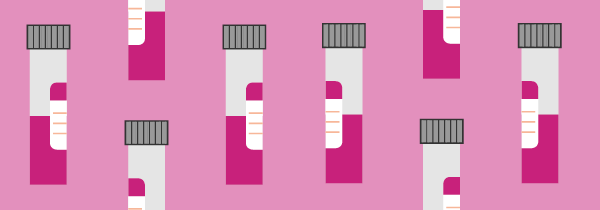What is chlamydia?
Chlamydia is the most common form of bacterial STI. Depending on where a person
becomes infected with chlamydia, it can be found in the vagina, rectum, urethra or throat.
How do you catch chlamydia?
It can easily be passed on during vaginal, anal, oral sex or from having close intimate contact with someone who has the infection- this can be unprotected sex or mutual masturbation or sharing sex toys.
What are the symptoms of chlamydia?
Often none at all. It can cause
- Change in vaginal discharge
- Discharge from water passage in men (urethral discharge)
- Pain passing urine
- Painful sex
- Unusual vaginal bleeding including after sex
What can happen if it’s not treated?
If not detected and treated, chlamydia can have long-term effects on our health.
In women, the infection can lead to Pelvic Inflammatory Disease (PID). This when the infection affects the tubes and causes permanent blockage of the fallopian tubes – meaning
- that it could be difficult or impossible to conceive (have a baby) without IVF treatment. This is more likely to happen if a woman gets repeated infections.
- In men, the infection can spread up the urethra and into the testicles – causing pain and swelling of the testicles or block the vas deferens (the tube which sperm leave the body from). It is quite rare for chlamydia to cause infertility in men.
How can I be tested for Chlamydia?
If you are under 25 you can tested through the chlamydia screening programme. Click here for further information on the screening programme.
The test involves in
Men – a urine sample (the first bit passed)
Women – either a self taken vaginal swab or swab from the neck of the womb (cervix)
Additional tests may be taken from throat and or back passage.
How do you treat chlamydia?
Treatment for chlamydia consists of a course of antibiotic tablets- usually a single once only dose but a longer course may be required. This is a very effective treatment for most people, but they should refrain from having sex until they (and their partner – if they have one) have completed treatment.
Does my partner need treatment?
Yes your partner needs testing and treating and you need not have any sexual contact sex until you both complete treatment.
Do I need a repeat test?
All under 25s are offered a repeat test 3 months later. Otherwise if it has been an
uncomplicated infection and any partners have been treated with no risk of re-infection a further test is not needed.
How can you prevent chlamydia?
By using condoms for sex and ensuring you get checked out if you change your partner and getting your partner tested too. If you have had chlamydia before it is good to have a repeat test 3 months after having treatment.
For more information please see:

